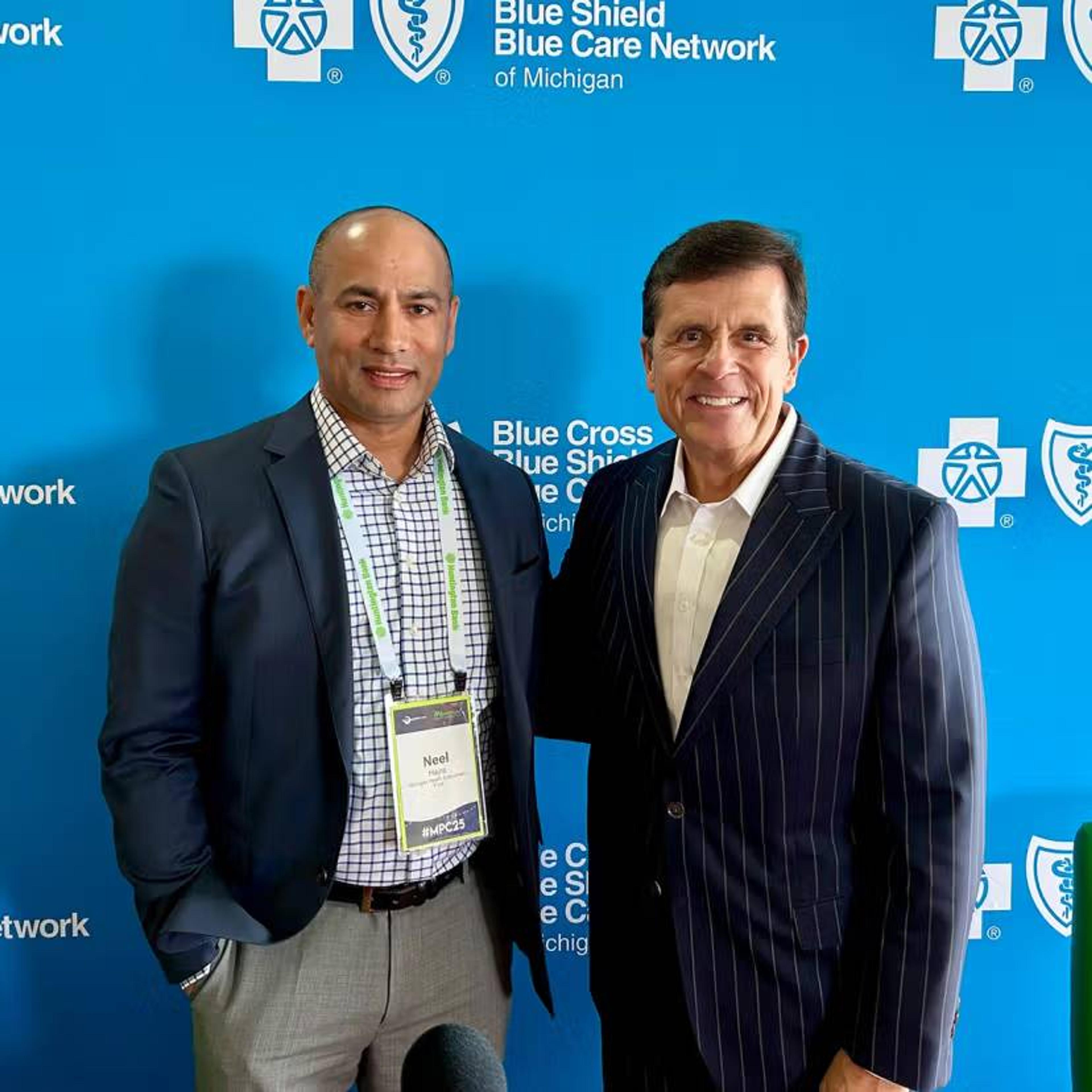
What makes health care more affordable? For many, the answer starts far before someone walks into a doctor's office or an emergency room. In this episode of the A Healthier Michigan Podcast, recorded live at the 2025 Mackinac Policy Conference, leaders from across Michigan come together to explore how upstream investments — in behavioral health, nutrition and chronic disease prevention — can lower costs and create healthier communities.
Host Chuck Gaidica moderates an informative conversation featuring Tiffany Albert, Senior Vice President of Community Relations at Blue Cross Blue Shield of Michigan; Jim Ananich, CEO of the Greater Flint Health Coalition; Neel Hajra, President and CEO of the Michigan Health Endowment Fund; and Oakland County Executive Dave Coulter. Together, they unpack how partnerships between health insurers, nonprofits, public officials and local leaders are addressing the root causes of poor health —and improving affordability in the process.
Tiffany Albert begins the episode sharing about Blue Cross’ commitment to affordability, which includes investing in what happens outside the clinical setting. Access to healthy food and mental health support all play a role in preventing costly medical interventions. She shares how Blue Cross strategically funds local initiatives that address these needs at the community level, helping people stay healthier—and out of the emergency room.
Jim Ananich adds that the Greater Flint Health Coalition has seen firsthand how coordinated community efforts can drive down the need for high-cost care. By bringing together health systems, schools, nonprofits and local governments, they provide resources to individuals that help prevent the need for emergency department visits and better manage chronic conditions like diabetes and hypertension. These outcomes, he notes, are a result of focusing on people, not just patients.
Neel Hajra reinforces the value of investing early. The Michigan Health Endowment Fund supports programs that tackle social determinants of health before they become medical crises. He points to growing evidence that these types of interventions not only improve health outcomes but also reduce the overall cost of care — especially when funding is pooled and used collaboratively.
Dave Coulter brings a county-level perspective, outlining how Oakland County is expanding behavioral health services, distributing food through school-based programs, and working to ensure housing stability for vulnerable residents. These efforts, he says, not only support individual well-being but also reduce pressure on hospitals and emergency services — making care more accessible and affordable across the board.
All four leaders agree: true affordability in health care starts with meeting people where they are, and giving communities the resources they need to thrive. That means thinking beyond insurance claims and clinical visits, and investing in upstream solutions that make a difference long before someone gets sick.
Listen to the full episode to hear how these cross-sector partnerships are reshaping the way Michigan thinks about health care — and affordability — from the ground up.
Photo credit: Blue Cross Blue Shield of Michigan






